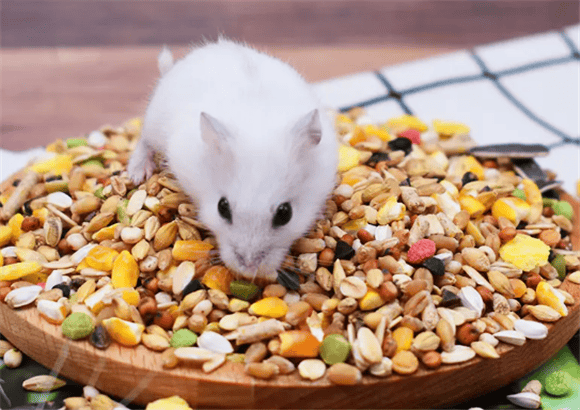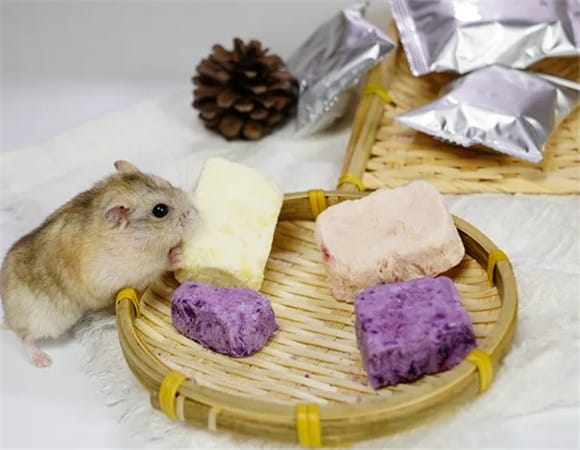Have you ever been attracted by the cute appearance of little hamsters and wanted to know the food preferences of these little guys?
As an animal lover, today I will reveal to you the food needs of hamsters, so that you can easily become an expert in hamster diet!

1. Types and sources of food suitable for little hamsters< /p>
Staple food: The staple food of hamsters should be feed specially designed for hamsters. These feeds contain various nutrients needed by hamsters, such as protein, fat, carbohydrates, vitamins and minerals. In addition, the particle size in the feed is also suitable for hamsters to chew, which helps maintain their oral health.
Grains: Grains are one of the important food sources for hamsters, such as oats, wheat, barley, etc. These grains are rich in carbohydrates and dietary fiber, which provide your hamster with energy and improve digestion. But be careful not to feed your hamster too much sugary cereal, as this can lead to increased blood sugar and obesity.
Nuts and seeds: Hamsters like to eat a variety of nuts and seeds, such as sunflower seeds, pumpkin seeds, peanuts, etc. These foods are rich in fat and protein and are an important source of energy for hamsters. But you also need to pay attention to feeding in moderation to prevent your hamster from eating too much fat and causing health problems.
Fruits and vegetables: Fruits and vegetables can provide hamsters with rich vitamins and minerals, such as carrots, apples, strawberries, etc. However, it should be noted that you should not feed your hamster fruits and vegetables that contain a lot of water or sugar to avoid causing diarrhea or elevated blood sugar in your hamster.
Protein source: Hamsters need to consume an appropriate amount of protein to maintain good health. You can choose to feed some cooked egg whites, cheese, dried fish, etc. These foods are rich in protein and easy to digest.
2. Nutrients in hamster food
The main nutrients needed by hamsters include protein, fat, carbohydrates, vitamins and minerals. Protein is the basic component of hamster body tissues and helps maintain the health of muscles, skin and hair; fat is an important source of energy for hamsters and is also a component of cell membranes; carbohydrates are a way for hamsters to quickly obtain energy; vitamins and minerals It is crucial to the growth, development and immune function of hamsters.

3. Things to note when feeding hamsters
Keep food fresh: Your hamster’s food should be kept fresh and avoid feeding expired or spoiled food to avoid causing food poisoning or gastrointestinal discomfort in your hamster.
Moderate feeding: Hamsters eat relatively small amounts of food. The amount of food should be reasonably controlled based on the hamster's weight and activity level to avoid obesity or indigestion caused by overfeeding.
Balanced diet: The hamster's diet should be balanced and should not be fed only a single food for a long time to avoid nutritional imbalance or lack of certain nutrients.
Regular feeding: Establishing regular feeding times will help hamsters develop good eating habits, and it will also help owners better understand their hamster's eating status.
Clean drinking water: Hamsters need to drink clean water at any time. The owner should regularly change the water in the drinking fountain to keep the water source clean and fresh.
In short, understanding the food needs and feeding precautions of hamsters is the key to ensuring the healthy growth of hamsters. I hope this article can provide you with useful reference and help, so that your little hamster can eat happily and healthily!

 扫一扫微信交流
扫一扫微信交流
发布评论